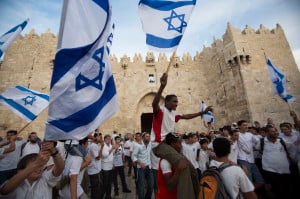Nowhere in scripture does it actually say that Jacob died. The answer lies in how one understands death.
This week’s Torah portion is “Vayechi” (Genesis 47:28-50:26). Although the word “Vayechi” actually means “to live on…” the focal point of our Torah portion is actually the death of Jacob! What’s even more interesting is that even though we are discussing the death and burial of Jacob, nowhere in scripture does it actually say that Jacob died! The portion of “to live on…” discusses death! And yet in the demise of Jacob there is no direct mention of death? What’s going on here?
The answer lies in how one understands death. Our sages teach us that there are two types of death. One type of death is physical death when the body ceases to function. This type of death happens to every human being – but hopefully not before 120 years have passed! But there is another type of death, as well. The death of one’s influence. The death of one’s memory. The death of the impact one makes on the lives of others around you. Sadly, there are many people whose impact, influence, and memory dies at the same time their bodies die. These are people who didn’t accomplish much in their lives. They had no affect on others. Hence, when they die, they are quickly forgotten.
This was not the case with Jacob. Although Jacob’s body no longer functioned, he was not dead. Dead #1 yes. Dead #2? Far from it. Jacob’s influence continues to be felt and experienced by his children to this very day. In fact, Israel, both the nation and the state, are named after Jacob! As the Torah tells us, after Jacob triumphed in the battle with the mysterious man his name was changed to Israel. (Genesis 32:28). The people of Israel and the State of Israel continue to display the effects and influence of Jacob. His love for God and the nation, his commitment to Jewish values even under hostile conditions, his determination to survival, and even his work ethics.
It is also noteworthy that Jacob was buried in Hebron. Before he died, Jacob made Joseph swear that he would not bury him in Egypt, but rather that he take him to Hebron to be buried with the other Patriarchs and Matriarchs of Israel. Indeed, it is a widespread Jewish custom even today to be buried in the Land of Israel no matter where one passes away – just as was the wish of Jacob. The ability to pray at the grave of the Patriarchs is yet another reason for our determination to keep Hebron under Jewish control. Would you allow your grandfather’s grave to be given away to your enemies?
Vayechi. Will you be gone after you die? Only you can decide.
Shabbat Shalom from Israel!
By: Rabbi Ari Enkin, Rabbinic Director, United with Israel
Sign the Declaration to Keep Jerusalem United
Jerusalem Must Remain the United Capital of Israel
I declare that Jerusalem is the eternal capital of the Jewish People and support all efforts to maintain and strengthen a united Jerusalem as the undivided capital of the State of Israel.



